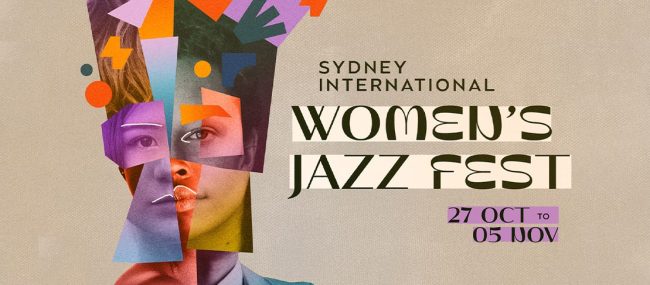Dahlia Dior at Blue Beat – Edith Piaf and Friends Review
Edith Piaf and Friends, performed by entertainer Dahlia Dior and accompanying band, played recently at Double Bay’s Blue Beat, with the Saturday night a sell out show and an additional Sunday night performance added. The Sunday night event drew a mostly older crowd of Francophiles and Francophones and smattering of couples were happy and subdued on a wet and cold Sunday night in Sydney. The theme for the evening unmistakably was love and undoubtably Paris and la vie bohème.
Dahlia Dior the chanteuse for the evening, her voice beautiful, accented, rich and smooth, well rounded. Her voice’s reverberation lends itself more to the French language songs and her love of world music. Dahlia noted the Edith Piaf era was the peak of French cabaret, and its song obviously born from the gypsy caravan, the link made with the Edith Piaf song ‘Le gitan et la fille’ (The gypsy and the girl).
The superb accompanying band of musicians were musical director on piano and accordion Marcello Maio, on the dinner set drums was Steve Lamante and Daniel Eltinger on violin. Mark Harris was on bass and vocals. A French turn of phrase is that the bass has, ‘le corps de la mère et la voix du père,’ translated loosely meaning, the bass has the body of the mother and the voice of the father and Mark’s deep low singing voice and bass assert the truth of this phrase.
La vie bohème, idealising love and its enduring power, relentless longing and search for love. The archetype starving artist described by Dahlia as the artist and his lover/model/muse who could dream of a life together surviving on love and air alone, before singing wonderfully Edith’s, ‘La Vie en Rose.’ The singer noting at the end of the song that Montmartre is changed, the buildings no longer the same, the lilac trees long gone. Resonant of how Paris and the whole world has changed from that époque and why the singer and the audience delight in the enduring iconic rapture of the mythologised life of the starving artist and the eternal truths of love.
Love and Paris go together, as a city that is the embodiment of our romantic fantasies, along with Edith Piaf and the songs of her era. Echoing the longing love can evoke, the desperation of holding on to a lover, Jacques Brel’s, ‘Ne me quitte pas.’ Dahlia begins the song beautifully in French evoking the sounds of Brel, who seemed to perform the words with tears running down his face. The choice for Dahlia to sing the remainder of the song in English and return to the old refrain at the end left something lost in translation. Specifically, the words in French that I hold so dearly from the song,
“Je ferai un domaine
Où l’amour sera loi
Où l’amour est roi
Où tu seras reine”
Translated ,
“I will make a kingdom
Where love will be the law
Where love will be king
Where you will be queen ”
These words were missing in the English translation sung by Dahlia, and it would not be just to alter the original French the intonation and emphasis with English. While the English version was performed wonderfully, the French language lends itself to Dahlias’ voice. As the event is in Australia with an English-speaking audience in mind, it requires that songs for the evening be sung in part in English, highlighting to me what is lost in translation with foreign language music. I began to hear whilst she was singing that the French language offers more corners for her voice to fill out, hang on to and round out. The wonderful roll of her R’s and ending of words normally unpronounced in everyday French that can be added for emphasis and a syllable to round out a line and drag the chain of a rounded voice, imbued with life and a well-worn weary loss and triumph of love. A heart splayed out by age, accented and allowed room to fill out all the words moving over the whole words sung.
Speaking to the singer briefly she mentioned her love of the French language and that it “allows your voice to roar.” She sang ‘Jezebel’ where love has moved on to a darker more controlling space, the spectre of the singer’s voice of the cabaret of the carnival of the gypsy camp comes out. Female singers get a well-deserved delightful growl in their voice accented and imbued with life lived and Dahlia’s voice reverberated with all these charms.
Then performing the iconic song of quintessential Edith Piaf’s, ‘Je ne regrette rien,’ Dahlia’s voice roars; she does not hesitate as she holds all the notes and soars. The audience was with her singing in moments and the gentle applause at its highest for this much loved song delivered with full length and breadth without limits, hearing the range of the delights of the singer’s voice.
The evening ends with the song titled, Hymn l’amour’, summing up the sentiments of the event. The evening taking me back to an older Paris unseen, unknown by most, glimpsed in old paintings, old prints, old postcards, old books, old stories, old films and old songs, brought back briefly by Dahlia’s singing and her band in a Jazz club in Double Bay on a rainy cold Sunday night in Sydney.


